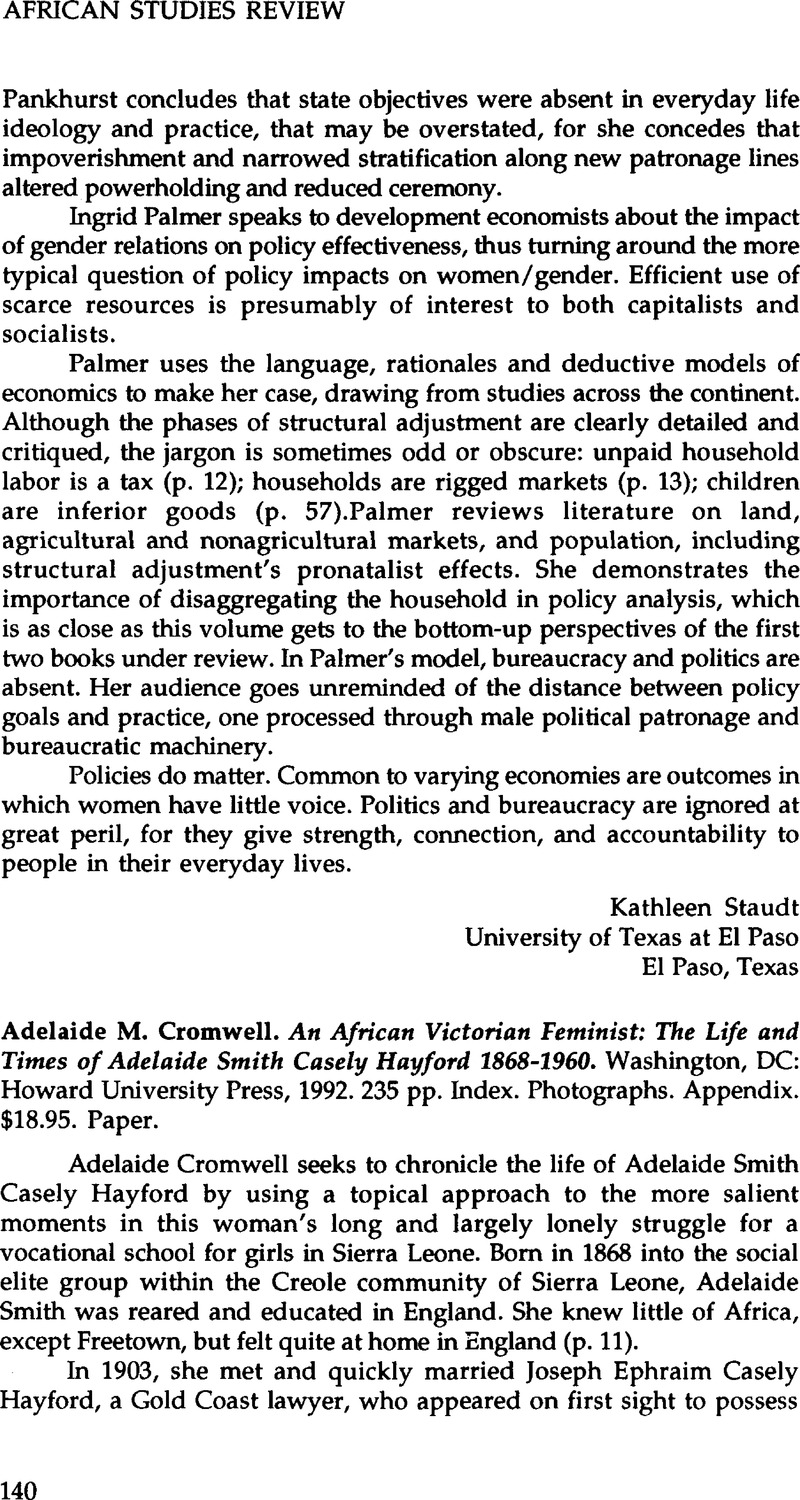No CrossRef data available.
Article contents
Adelaide M. Cromwell. An African Victorian Feminist: The Life and Times of Adelaide Smith Casely Hayford 1868-1960. Washington, DC: Howard University Press, 1992. 235 pp. Index. Photographs. Appendix. $18.95. Paper.
Published online by Cambridge University Press: 23 May 2014
Abstract

- Type
- Review Essay and Book Reviews
- Information
- Copyright
- Copyright © African Studies Association 1993
References
Notes
1. The use of the term “sojourn” adds to Professor Cromwell's biography. “Sojourner” was the name chosen by a runaway slave, Sojourner Truth, who would be free by her own will. Sojourner Truth spent her life in “freedom” as a Black abolitionist and, in the circumstance, a feminist. Being both African and female, she was required to fight both for the right to speak and the right to speak out against slavery.
2. See Gatewood, Willard, Aristocrats of Color: The Black Elite, 1880-1920 (Bloomington, IN: Indiana University Press, 1990)Google Scholar. See especially Part III, Chapter 6.
3. Witness, for example, the struggle between W. E. B. DuBois and Booker T. Washington over the question of the proper education for ex-slaves and other African-Americans at the turn of the century.
4. See Welter, Barbara, “The Cult of True Womanhood: 1820-1860,” in Gordon, Michael, ed. The American Family in Social-Historical Perspective (New York: St. Martin's Press, 1983)Google Scholar.


